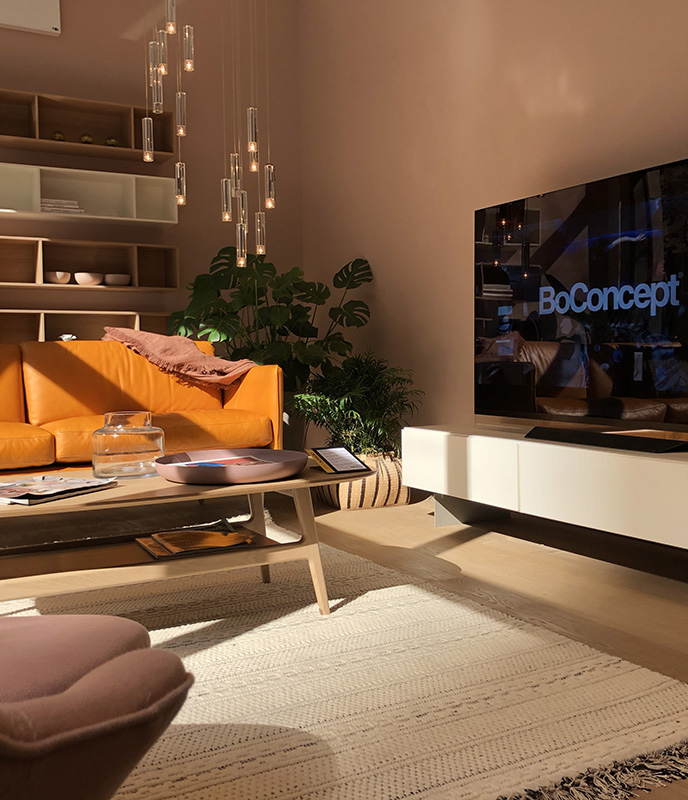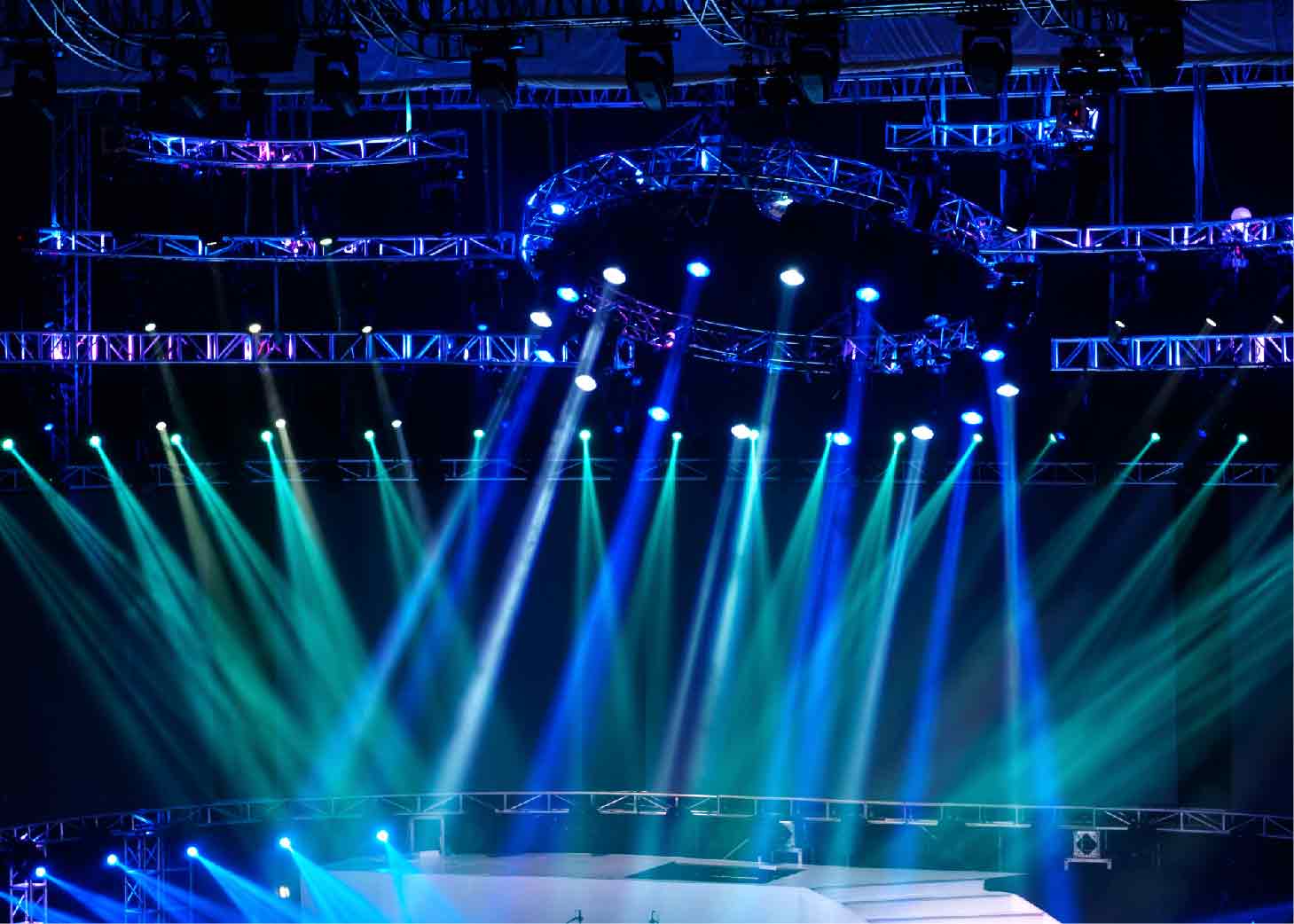Top Hospitality Trends at InfoComm 2019
Your so-called home away from home is becoming more of just that. The hospitality industry has always sought to provide an experience that mimics the comforts of your home, and the latest audio and video technology plays an increased role in achieving that goal. InfoComm 2019 highlighted how hotels and restaurants are harnessing creative applications of AV to lure and retain customers. Here are a few of the top trends that were on display.
 BoConcept Living Room
BoConcept Living Room
A Golden Age for Kiosks
With the advent of user-centric interface design, kiosks are now much more responsive to user cues and easier to navigate. They can be designed to mimic a mobile phone app, so guests can start the check-in process before setting foot on the hotel property, and upon arrival, a seamless experience takes them from their mobile device to kiosk to in-room touchpanel or smart TV. Kiosks can now automate everything from check-in to concierge bookings to restaurant reservations, freeing up hotel staff to focus on more high-touch concierge services.
If hotel staff struggles to use the technology, a kiosk may not even be turned on because it was too much trouble to operate. This was a real-life observation shared by Jill Perardi, Creative Services Manager at Visix, during the InfoComm education session “Increasing Convenience and Creature Comforts with Kiosks in Hotels.” According to Perardi, content management software now prioritizes the ease of use for operators, which in turn affects how much guests benefit from advanced technology.
Audio as Part of Brand Identity
Customized audio systems are being embraced as an influential element of hospitality brands according to experts from Mood Media and PlayNetwork, two of the leading music content service providers for hospitality, who along with AV integrator Essential Communications presented the InfoComm 2019 education session “Audio Atmosphere and Brand Experience in Hotels.” There are many styles of hotels today as the industry caters to diverse travelers, and music plays an incredibly important role in addressing their needs. Music content that suits specific places and times of day is becoming a requirement for hotels and resorts.
Audio technology makes it possible for music content and sound levels to vary depending on the types of spaces, and themes of restaurants or bars. Music is now about so much more than filling a background void. It adds a unique element to the experience; however, if done poorly, music can negatively impact the environment.
Video Goes More Places at Increasing Speeds
Advancements in video signal management have made it easier for more content to be displayed in more places. Sports bars and casino sportsbooks demonstrate this well where simplified expansion of sources to a potentially infinite consortium of displays has created new opportunities for fan engagement – a focus for InfoComm 2019 exhibitors like AVPro Edge, Aten and many others. Improvements in video compression and its effect on latency has ensured that fans take in all the action without delay. This was extensively represented at InfoComm 2019 by hundreds of exhibitors championing AV over IP solutions and manufacturer alliance organizations like HDBaseT, SDVoE and Avnu.
AV as an Interactive Art Medium
Perhaps the most visible use of audio and video in hospitality is in creating interactive and responsive experiences. Artistic elements are being redefined by 4K video while sensors and augmented reality allow for guest participation. Sound is there to further enhance these applications in unique, location-specific means. Creative content studios such as Leviathan and Moment Factory have been ever more present at InfoComm as AV practitioners seek to more actively engage these communities, and vice versa. The possibilities are endless when creative minds learn to harness next-gen technology like a new color swatch on their palettes. All the while, hospitality venues cultivate these innovations to deepen customer loyalty.





